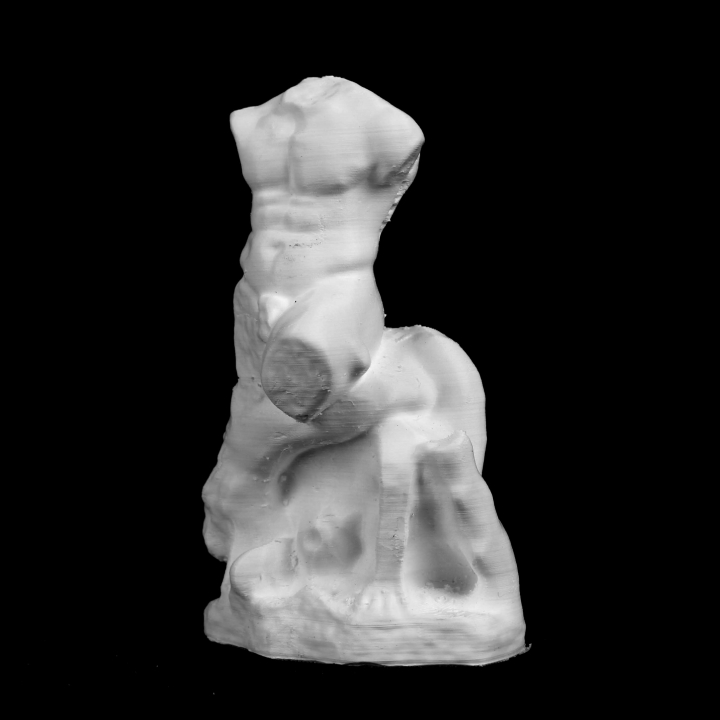
Hercules Épitrapézios at The Louvre, Paris
myminifactory
This type of marble representation by Lysippos could be pinpointed thanks to testimony from ancient sources. Two Latin poets from the end of the 1st Century A.D., Martial (Épigrammes, 9, 43 and 44) and Stace (Silvae, 4, 6), describe a small bronze statue of Hercules which on its base bears the signature of Lysippos. This lost statue was known under the name 'Hercules Épitrapézios', from Greek words Epi, 'on' and trapeza, 'table'. The sculpture was carved by Lysippos before 335 B.C., to decorate a table for Alexander the Great. The heroes were presented holding a glass of wine, their heads thrown back in a relaxed pose. It was discovered in 1792 by Gavin Hamilton in Gabies (Italy). One of a series of four variants representing Hercules sculpted by the ancient Greek master Lysippos between 370-300 BC), Hercules is probably the most well-known and most important Greek heroes, a demi god given immortality through his divine parentage. As son of Zeus and Alcmene, he was destined for great deeds. His cousin Eurytheus was forced to confront Hercules as his opponent in the famous Labours of Hercules (Hera's candidate for Eurytheus and Zeus's choice was Hercules). Hercules is known for carrying a large wooden club and the 'Léonte', the skin of the Nemean Lion - the first creature he had to kill in his labours. The four statuettes featured in the Louvre, all included on the Scan the World archive, are a collection of reproductions by the sculptor Lysippos who significantly changed the image of how heroes were depicted in art, reflecting their exploits. We can attribute this image through his famous sculpture 'The Hercules Farnese' of the Naples museum and a colossal statue of Hercules sitting. This object is part of "Scan The World". Scan the World is a non-profit initiative introduced by MyMiniFactory, creating a digital archive of fully 3D printable sculptures, artworks and landmarks from across the globe for public access. Scan the World is an open source community effort; if you have interesting items around you and would like to contribute, email stw@myminifactory.com to find out how you can help.
With this file you will be able to print Hercules Épitrapézios at The Louvre, Paris with your 3D printer. Click on the button and save the file on your computer to work, edit or customize your design. You can also find more 3D designs for printers on Hercules Épitrapézios at The Louvre, Paris.
